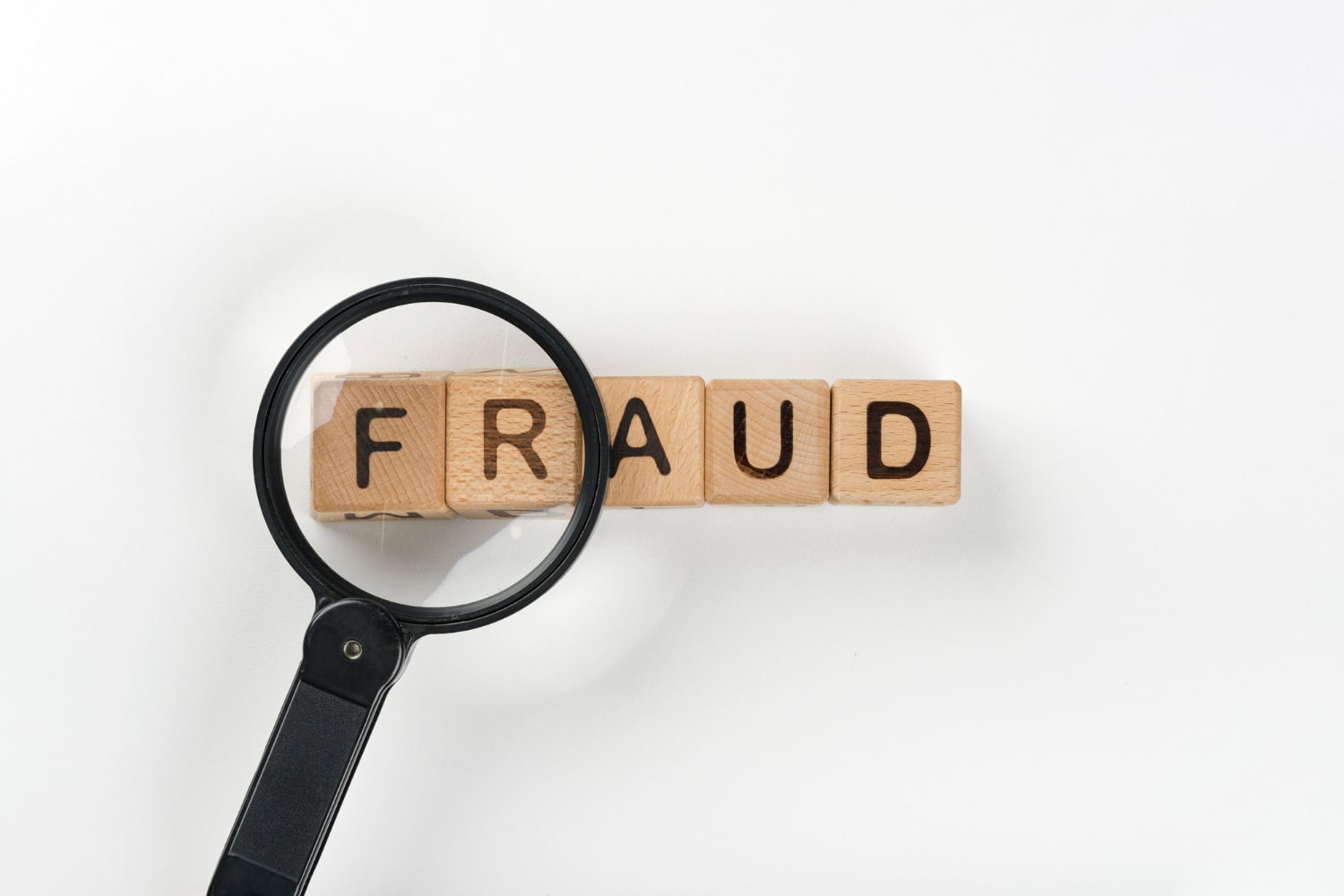In today’s digital age, financial transactions and personal information are exchanged more rapidly and conveniently than ever before. Whilst this is a positive move for convenience it has also led to a surge in fraud, which can have devastating consequences for individuals and businesses alike.
Fraud comes in various forms, from identity theft to online scams and Ponzi schemes. The scale of Fraud is staggering.
This article delves into investigating the scope of fraud and provides some practical tips on how individuals can protect themselves from falling victim to these schemes.
What is financial fraud?
Financial fraud is when a criminal takes money or assets from an individual or business via deception or criminal activity.

The Scale of Financial Fraud
Fraud has grown to unprecedented proportions, with millions of pounds lost each year in England and Wales. Cybercriminals are becoming increasingly sophisticated, employing a variety of tactics to exploit vulnerabilities in systems, networks, government, laws and human behaviour. Some alarming statistics highlight the magnitude of the issue:
The most reliable figures available are from the Crime Survey of England and Wales show that in the financial year, ending December 2022, there were 3.7 million incidents of reported fraud in England and Wales. Whilst this figure is already extremely high, it is further estimated that 86% of fraud that occurs are unreported. This demonstrates that the scale and nature of fraud is highly significant.
What happens to the proceeds of financial crime?
Most of the proceeds of financial crime will be laundered in the UK or moved overseas by organised crime groups. These groups use mule networks to have criminals obtain goods and obscure the original source of the funds.
Who do financial fraudsters target?
Victims of fraud vary and typically no one is safe from fraudsters. But they do often target:
- Vulnerable individuals – because they are seen as an easy target by fraudsters.
- Major corporations – because of the potential for larger financial transactions.
- Small businesses – because they are less likely to have the appropriate infrastructure in place to mitigate against fraud.
- High net-worth individuals – because of the greater potential profit.

Common Types of Financial Fraud
Below are some of the most common types of financial fraud.
Data Breaches
Data breaches are a key enabler of fraudulent activity. Data breaches can enable fraudsters to obtain personal information which can make it easier for them to commit fraud.
Online Fraud
Historically, fraud was often committed on the phone, via post or even in person. However, more and more fraud is now being committed online. Online access now gives fraudsters the opportunity to exploit a victim remotely and in most cases from overseas.
Identity theft
Identity theft occurs when criminals get access to an individual’s personal information through social engineering, data breaches, or outright theft. Once the criminals have obtained this data they can commit identity theft by impersonating this individual and gain access to bank accounts and steal money.
Romance scams
This is where a fraudster will use a popular dating app or website to meet their victim. After often creating a fake profile, the fraudster will build a relationship with their victim to gain their trust. Once they believe enough trust is gained, they will persuade their victim that they are some sort of expert in investing or in financial difficulty and will persuade them send funds across or to invest in something that does not exist.
Buying goods that do not exist
The victims of this type of scam will attempt to make a payment for an online purchase which doesn’t actually exist. The fraudster will then call their victim impersonating their bank to tell them their payment was unsuccessful. The victim will then make multiple payments to the fraudsters’ bank account.
Safe account scams
Fraudsters will impersonate a reputable company such as a bank and advise their victim to move their money out of their bank account and into another account for safekeeping. When in fact they will be transferring their money straight to the fraudster.
Invoice Scams
This is where a legitimate invoice is intercepted and replaced with new bank details which belong to fraudsters.

How to safeguard against financial fraud?
To safeguard and protect yourself against financial fraud here are some best practices;
Personal details
Never share any personal information with organisations or individuals before you have verified that they are legitimate.
Personal details include your name, address, email, phone number and most importantly your credit or debit card details such as your bank account number.
Anti-virus software
Ensure your computer and any other digital devices have up-to-date anti-virus software and firewall installed.
Giving your digital devices the highest level of security will give you the best chance of preventing malware issues on your computer.
Phishing emails
Incidents of fraud often start with a phishing email. It is important to remember that banks will never send you an email asking you to click a link to confirm your bank details. So it is important to never trust these emails even if they appear to be legitimate.
Always call your bank if you are unsure.
Destroy anything with personal information on
Fraudsters do not need a lot of information to be able to clone you and commit identity theft. Therefore, it is recommended you shred any physical copies of personal information that you no longer require.
Take a moment
Remember to think before you act and if something feels wrong it probably is. Don’t always assume that just because someone is claiming to know information about you, they are from a legitimate company or institution. Your bank and other institutions will never pressurise you into making quick decisions, scammers will do.
Try where possible to retain as much control as you can, don’t be afraid to question things and listen to your instincts.
If you still feel uneasy, stop contact/terminate the call and speak to a trusted institution yourself.
What if I have been a victim of fraud?
If you have been a victim of fraud, it is important that you report financial fraud to Action Fraud. Incidents of fraud are currently being underreported as victims are often left embarrassed or ashamed. However, it is very important that you report instances of fraud as it can help prevent fraud in the future and there is a chance that your lost funds could be recovered.
How can we help?
Hawsons Wealth Management Limited provides a complete range of financial services for individuals and businesses, including private pension scheme advice, inheritance tax planning, investments advice, help with workplace pensions and auto-enrolment, and independent financial advice in Sheffield, Doncaster, and Northampton.
As fully independent, highly experienced professional financial advisers we are in the best position to be able to provide a tailored solution for corporate and personal financial services and investment advice, linked with specialist tax planning advice from the experts at Hawsons Chartered Accountants.

Natasha Fathers
Director of Hawsons Wealth Management Limited, Sheffield
Free initial meeting
Related content
What is inheritance tax?
What is inheritance tax? The government imposes inheritance tax on the estate of a deceased person before distributing the assets to their heirs. It calculates this tax based on the value of the person's estate (the assets they own individually) above a certain...
Inheritance tax planning guide
Inheritance tax planning How can I reduce any inheritance tax liabilities? Planning ahead allows individuals and couples to employ strategies for reducing the value of their taxable estate, helping them stay under the inheritance tax threshold. Annual gift allowance...
2024 Ransomware Trends
The cyber security criminals aren’t giving up, and they’re not just doubling down either. They are now tripling down. They even have virtual “ransomware supermarkets” for criminals to pop in and buy ransomware in a box with a set of instructions so even more criminals...



